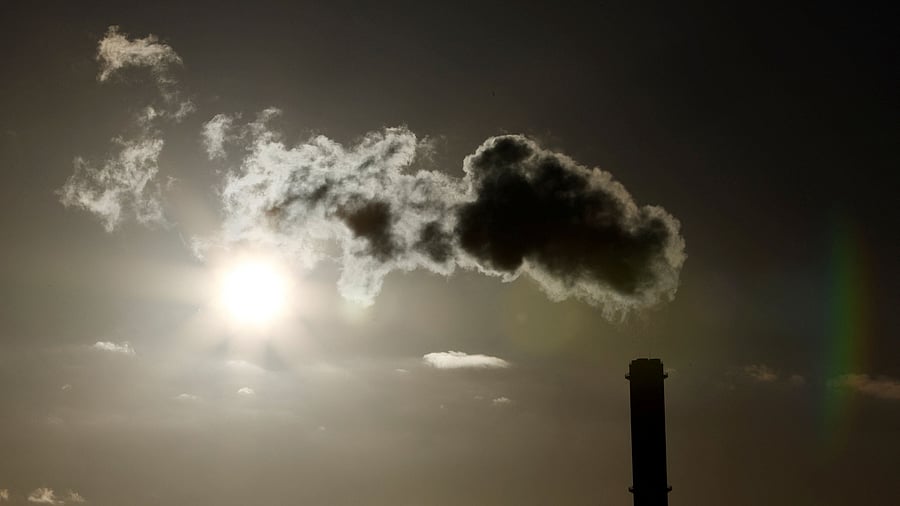
A view shows emissions from the smoke stack of a coal-fired power plant.
Credit: Reuters File Photo
Bengaluru: The Union government is selectively using studies it funded to justify efforts to dilute the rule mandating installation of flue gas desulphurisation (FGD) units in coal-fired thermal plants, despite proof that FGD is effective in removing harmful sulphur dioxide from emissions, the Centre for Research on Energy and Clean Air (CREA) said on Tuesday.
CREA, an independent research organisation, was responding to a report on a high-level committee led by the Prime Minister's Principal Scientific Advisor recommending doing away with the FGD rule. “FGD is a proven technology that removes sulphur dioxide (SO₂). SO₂ turns into fine particulate matter (PM 2.5) that enters our lungs and causes various diseases, killing millions every year. Yet, power plants across the country continue to stall the installation of FGDs,” CREA said.
The Ministry of Environment, Forests and Climate Change (MoEF&CC) in 2017 issued the FGD guidelines. However, the deadline for installing the units has been postponed following requests from power generating companies.
“Shockingly, studies by NEERI, NIAS and IIT Delhi (2022 and 2024), funded by the Central Electricity Authority and NITI Aayog, are now being selectively used to justify major dilutions in emission standards,” CREA said, noting that the standards were critical for reducing air pollution at the national level.
It said the NEERI report, cited to downplay the need for FGD, itself acknowledges that FGD will reduce the overall ambient air particulate matter by up to 20 micrograms per cubic metre. “Reducing PM 2.5 levels by 20 micrograms per cubic metre in India's most polluted city, where annual averages are around 100 micrograms per cubic metre, would mean achieving a 20% reduction from a single control measure. It is alarming to see NEERI completely ignoring its own key finding and basing its recommendation on ambient SO₂ concentrations,” CREA analyst Manoj Kumar stated.
Manoj said thermal plants contribute to 12% of winter PM 2.5 and 16% of cross-boundary pollution, as per studies by IIT Delhi and IIT Bombay. He said CREA also identified 11 other Indian studies that highlight the importance of controlling emissions from the power sector and the significant public health impacts of emissions from coal plants.
To a question, Manoj said beyond the conflict of interest, the studies were riddled with contradictions and cannot be the basis for any move to dilute the rules for the thermal plants. “Now that the responsibility lies with the Central Pollution Control Board, MoEF&CC and ultimately the courts, we hope they consider credible scientific evidence rather than relying on selective interpretation of the findings,” he said.